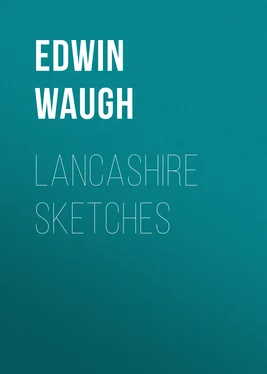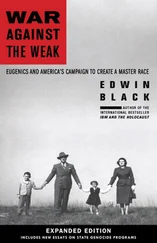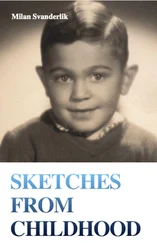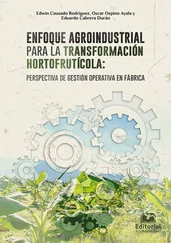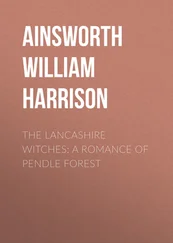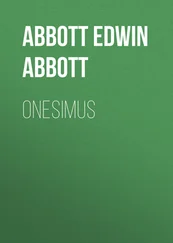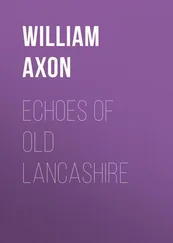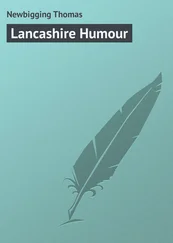Edwin Waugh - Lancashire Sketches
Здесь есть возможность читать онлайн «Edwin Waugh - Lancashire Sketches» — ознакомительный отрывок электронной книги совершенно бесплатно, а после прочтения отрывка купить полную версию. В некоторых случаях можно слушать аудио, скачать через торрент в формате fb2 и присутствует краткое содержание. Жанр: Путешествия и география, foreign_antique, foreign_prose, на английском языке. Описание произведения, (предисловие) а так же отзывы посетителей доступны на портале библиотеки ЛибКат.
- Название:Lancashire Sketches
- Автор:
- Жанр:
- Год:неизвестен
- ISBN:нет данных
- Рейтинг книги:4 / 5. Голосов: 1
-
Избранное:Добавить в избранное
- Отзывы:
-
Ваша оценка:
- 80
- 1
- 2
- 3
- 4
- 5
Lancashire Sketches: краткое содержание, описание и аннотация
Предлагаем к чтению аннотацию, описание, краткое содержание или предисловие (зависит от того, что написал сам автор книги «Lancashire Sketches»). Если вы не нашли необходимую информацию о книге — напишите в комментариях, мы постараемся отыскать её.
Lancashire Sketches — читать онлайн ознакомительный отрывок
Ниже представлен текст книги, разбитый по страницам. Система сохранения места последней прочитанной страницы, позволяет с удобством читать онлайн бесплатно книгу «Lancashire Sketches», без необходимости каждый раз заново искать на чём Вы остановились. Поставьте закладку, и сможете в любой момент перейти на страницу, на которой закончили чтение.
Интервал:
Закладка:
Book. Aye, aye: primely i'faith!—for they glooarn't sooar at mo; turn't mo reawnd like a tayliur, when he mezzurs folk; chuckt mo under th' chin; ga' mo a honey butter-cake, an said oppenly, they ne'er saigh an awkert look, a quare shap, an a peckl't jump gee better eh their live.
Tim. Neaw, e'en fair fa' um, say aw! These wur'n th' boggarts at flayd'n tho! But aw'd olez a notion at tear'n no gonnor-yeds.
Book. Gonner-yeds! Naw, naw, not te marry! Boh, aw carry 't mysel' meety meeverly too-to, an did as o bidd'n mo.
Tim. Then theaw towd um th' tale, an said th' rimes an aw, did to?
Book. Th' tale an th' rimes! 'Sflesh, aw believe eh did; boh aw know no moor on um neaw than a seawkin' pig.
Tim. 'Od rottle the; what says to? Has to foryeat'n th' tayliur findin' th' urchon; an th' rimes?
Book. Quite, quite; as eh hope to chieve!
Tim. Neaw e'en the dule steawnd to, say aw! What a fuss mun aw have to teytch um tho again!
Book. Come, come; dunna fly up in a frap; a body conno carry oytch mander o' think eh their nob.
Tim. Whau boh, mind neaw, theaw gawmblin' tyke, at to can tell th' tale an say th' rimes be rot tightly.
Book. "Fear me na," said Doton; begin.
Tim. A tayliur, eh Crummil's time, wur thrunk pooin' turmits in his pingot, an fund an urchon i'th hadloont reean. 11 11 Hadloont reean —headland gutter.
He glendurt at't lung, boh could may nowt on't. He whoav't hi whisket o'ert, runs whoam, an tells his neighbours he thowt in his guts at he'd fund a think at God ne'er made eawt, for it'd nother yed nor tale, nor hont nor hough, nor midst nor eend! Loath t' believe this, hauve a dozen on um would gu t' see iv they could'n may shift t' gawm it; boh it capt um aw; for they newer a one on um e'er saigh th' like afore. Then theyd'n a keawncil, an th' eend on't wur at teyd'n fotch a lawm, fause owd felly, het 12 12 Het —hight, called
an elder, at could tell oytch think,—for they look'nt on him as th' hamil-scoance, an thowt him fuller o' leet than a glow-worm's a—se. When they'n towd him th' case, he stroke't his beeart; sowght; an order't th' wheelbarrow wi' spon-new trindle t' be fotcht. 'Twur dun; an they beawln't him away to th' urchon in a crack. He glooart at't a good while; dried his beeart deawn, an wawtud it o'er with his crutch. "Wheel me abeawt again, o'th tother side," said he, "for it sturs, an by that, it should be wick." Then he dons his spectacles, stare't at't again, an sowghin', said, "Breether, its summat: boh feyther Adam nother did, nor could kersun it. Wheel mo whoam again!"
Book. Aw remember it neaw, weel enough: boh iv these viewers could gawm it oytch body couldna; for aw find neaw at yo compare'n me to a urchon, ut has nother yed nor tale; 'sflesh, is not it like running mo deawn, an a bit to bobbersome.
Tim. Naw, naw, not it; for meeny o' folk would gawm th' rimes, boh very lite would underston th' tayliur an his urchon.
Book. Th' rimes;—hum,—lemme see. 'Sblid, aw foryeat'n thoose, too, aw deawt!
Tim. Whoo-who whoo! What a dozening jobberknow art teaw!
Book. Good lorjus o' me; a body conna do moor thin they con, con they? Boh iv in teytch mo again, an aw foryeat um again, e'en raddle meh hoyd tightly, say aw.
Tim. Mind te hits, then!
Some write to show their wit and parts,
Some show you whig, some tory hearts,
Some flatter knaves , some fops , some fools ,
And some are ministerial tools.
Book. Eigh, marry; oytch body says so; an gonnor-yeds they are for their labbor.
Tim. Some few in virtue's cause do write,
But these, alas! get little by't.
Book. Indeed, aw can believe o! Weel rime't, heawe'er: gu on.
Tim. Some turn out maggots from their head,
Which die before their author's dead.
Book. Zuns! Aw Englanshire 'll think at yo'r glentin' at toose fratchin', byzen, craddlinly tykes as write'n sich papers as th' Test , an sich cawve-tales as Cornish Peter , at fund a new ward, snyin' wi glums an gawries.
Tim. Some write such sense in prose and rhyme,
Their works will wrestle hard with Time.
Book. That'll be prime wrostlin', i'faith; for aw've yerd um say, time conquers aw things.
Tim. Some few print truth , but many lies
On spirits , down to butterflies .
Book. Reet abeawt boggarts; an th' tother ward; and th' mon i'th moon, an sich like gear: get eendway; it's prime, i'faith.
Tim. Some write to please , some do't for spite ,
But want of money makes me write.
Book. By th' mass, th' owd story again! Boh aw think eh me guts at it's true. It'll do; yo need'n rime no moor, for it's better t'in lickly. Whewt 13 13 Whewt —whistle.
on Tummus an Mary.
To a liberal and observant stranger, one of the richest results of a visit to this quarter will arise from contemplation of the well-defined character of the people that live in it. The whole population is distinguished by a fine, strong, natural character, which would do honour to the refinements of education. A genteel stranger, who cannot read the heart of this people through their blunt manners, will, perhaps, think them a little boorish. But though they have not much bend in the neck, and their rough dialect is little blest with the set phrases of courtesy, there are no braver men in the world, and under their uncouth demeanour lives the spirit of true chivalry. They have a favourite proverb, that "fair play's a jewel," and are generally careful, in all their dealings, to act upon it. They feel a generous pride in the man who can prove himself their master in anything. Unfortunately, little has yet been done for them in the way of book-education, except what has been diffused by the Sunday-schools, since the times of their great apostle, John Wesley, who, in person, as well as by his enthusiastic early preachers, laboured much and earnestly among them, in many parts of South Lancashire. Yet nature has blest them with a fine vein of mother-wit, and has drilled some useful pages of her horn-book into them in the loom, the mine, and the farm, for they are naturally hard workers, and proud of honest labour. They are keen critics of character, too, and have a sharp eye to the nooks and corners of a stranger's attire, to see that, at least, whether rich or poor, it be sound, and, as they say, "bothomly cleeon," for they are jealous of dirty folk. They are accustomed to a frank expression of what is in them, and like the open countenance, where the time of day may be read in the dial, naturally abhorring "hudd'n wark, an' meawse-neeses." Among the many anecdotes illustrative of the character of this people, there is one which, though simple, bears a strong stamp of native truth upon it. A stalwart young fellow, who had long been employed as carter for a firm in this neighbourhood, had an irresistible propensity to fighting, which was constantly leading him into scrapes. He was an excellent servant in every other respect, but no admonition could cure him of this; and at length he was discharged, in hope to work the desired change. Dressing himself in his best, he applied to an eminent native merchant for a similar situation. After other necessary questions, the merchant asked whether he had brought his character with him. "My character!" replied our hero, "Naw, aw'm a damned deeol better beawt it!" This anecdote conveys a very true idea of the rough vigour and candour of the Lancashire country population. They dislike dandyism and the shabby-genteel, and the mere bandbox exquisite would think them a hopeless generation. Yet, little as they are tinctured with literature, a few remarkable books are very common among them. I could almost venture to prophesy before going into any substantial farmhouse, or any humble cottage in this quarter, that some of the following books might be found there: the Bible, Bunyan's Pilgrim's Progress, the Book of Common Prayer, and often Wesley's Hymn-book, Barclay's Dictionary, Culpepper's Herbal; and, sometimes, Thomas à Kempis, or a few old puritan sermons. One of their chief delights is the practice of sacred music; and I have heard the works of Haydn, Handel, Mozart, and Beethoven executed with remarkable correctness and taste, in the lonely farmhouses and cottages of South Lancashire. In no other part of England does such an intense love of sacred music pervade the poorer classes. It is not uncommon for them to come from the farthest extremity of South Lancashire, and even over the "Edge" from Huddersfield, and other towns of the West Riding of Yorkshire, to hear an oratorio at the Free Trade Hall, returning home again, sometimes a distance of thirty miles, in the morning.
Читать дальшеИнтервал:
Закладка:
Похожие книги на «Lancashire Sketches»
Представляем Вашему вниманию похожие книги на «Lancashire Sketches» списком для выбора. Мы отобрали схожую по названию и смыслу литературу в надежде предоставить читателям больше вариантов отыскать новые, интересные, ещё непрочитанные произведения.
Обсуждение, отзывы о книге «Lancashire Sketches» и просто собственные мнения читателей. Оставьте ваши комментарии, напишите, что Вы думаете о произведении, его смысле или главных героях. Укажите что конкретно понравилось, а что нет, и почему Вы так считаете.
